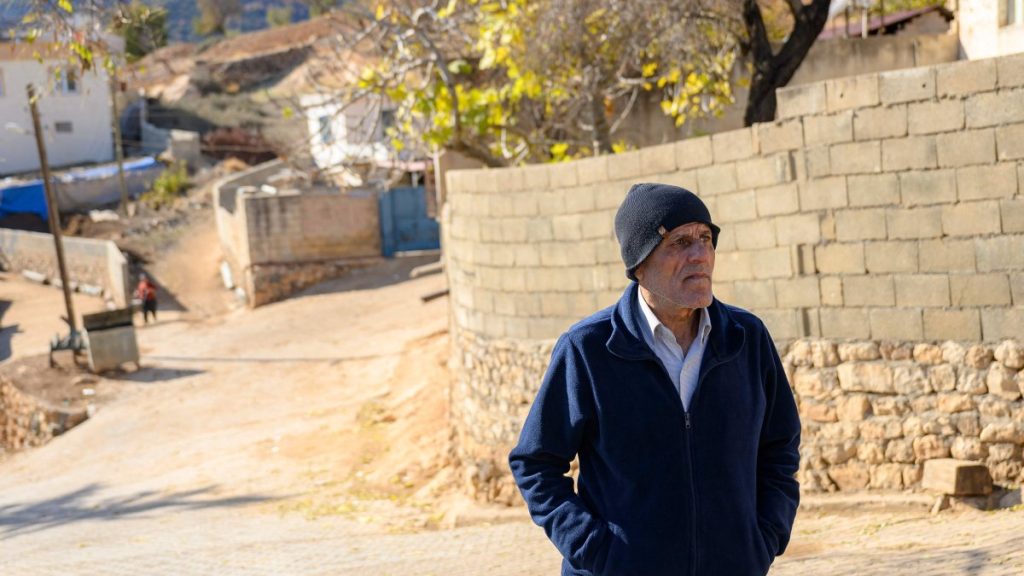“It was torture after torture,” Mehmet Ertürk said, miming the truncheon blows to the mouth the guards would give him at a notorious Damascus prison known as the Palestine Branch, where he spent part of his time incarcerated. At home and reunited with his wife after 20 years in prison in Syria, he cannot eat the bread his wife has made for him. Half his teeth are missing and the other half are threatening to fall out.
Arrested in 2004 for smuggling, Ertürk finally made it back to his home to Mağaracık in the Turkish province of Kilis on Monday evening, a village perched at the top of a winding road dotted with olive trees some 10 minutes from the Syrian border.
“My family thought I was dead,” said the 53-year-old, whose face and manner of walking make him look 20 years older. On the night of his release, he heard gunshots and began to pray. “We didn’t know what was happening outside. I thought I was finished,” he said. Then he heard loud hammer blows, and within minutes, the prison gates were flung open by the anti-regime forces who ousted Syrian strongman Bashar Assad.
“We hadn’t seen him for 11 years. We had no hope,” admitted his wife Hatice, sitting cross-legged outside their home preparing bread with their youngest daughter, who was barely 6 months old when her father was arrested.
After he was sentenced to 15 years, the prison authorities left this father-of-four to languish in an underground dungeon at the mercy of brutal guards. “Our bones would pop out of the socket when they hit our wrists with hammers,” he said. “They also poured boiling water down the neck of one prisoner. The flesh from his neck just slid all the way down” to his hips, he said.
Pulling up his right trouser leg, he shows his right ankle, the skin darkened by the chain he wore.”During the day, it was strictly forbidden to talk … there were cockroaches in the food. It was damp, it stank like a toilet,” he said, recalling days “without clothes or water or food.” “It was like being in a coffin.”
And there was huge overcrowding. “They put 115, 120 people in a cell for 20 people. Many people died of starvation,” he said. And the guards just “threw the dead into rubbish skips.”
Ertürk said he paid the price for the hatred Syria’s authorities bore for Turkish President Recep Tayyip Erdoğan, who, early in the war, urged Assad to leave. “We Turks suffered a lot of torture for that,” he told Agence France-Presse (AFP), saying he was refused medication on the grounds of his nationality.
He sank so low he even hoped they would hang him. “They were taking us to a new prison block and I saw a rope hanging from the ceiling and I said: ‘Thank God, I’m saved,'” he said.
As he recounted the horrors, he often broke off to thank “our dear President Erdoğan” for him being back, alive with his family and not one of the countless victims of Syria’s brutal prison system.
Those could number more than 105,000 people since the war began in 2011, according to the London-based Syrian Observatory for Human Rights (OSDH).
One of his sisters passes him a handful of old photos. In one, he is pictured with a lifelong friend called Faruk Karga, who ended up in the same prison with him shortly after the picture was taken. But Karga never came home. “He died of starvation in prison in around 2018,” said Ertürk. “He weighed about 40 kilograms (88.19 pounds).”


